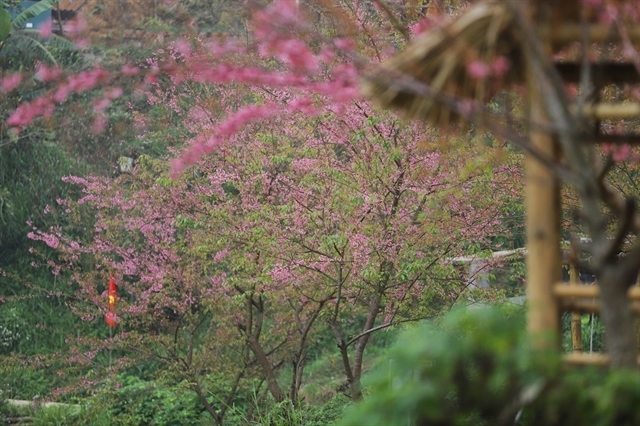 Features
Features

This year, the province aims to receive 1.6 million tourists, including 220,000 foreigners, while income from tourism is expected to reach VNĐ800 billion (US$34 million).
By Lê Thúy Hằng
Authorities in the southern province of Vĩnh Long are trying to turn tourism into a powerhouse of local economic growth.
This year, the province aims to receive 1.6 million tourists, including 220,000 foreigners, while income from tourism is expected to reach VNĐ800 billion (US$34 million).
To get tourists to stay longer, the local tourism sector has decided to promote some special tourism products.
Promoting folk singing
Director of Vĩnh Long Department of Culture, Sports and Tourism Phan Văn Giàu says hát bội (classical drama) shows have been offered on a trial basis as entertainment for tourists.
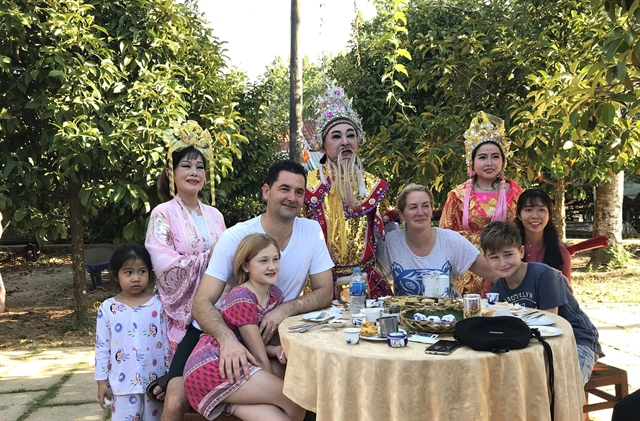
|
| Tourists take a photo with local hát bội singers. VNA/VNS Photos Lê Thúy Hằng |
The province has helped tourism companies include shows by the local Đồng Thinh Art Troupe in their tours.
“Our art troupe is rare of its kind to offer the classical drama art,” he says. “The troupe was selected by the culture ministry to perform in Smithsonian Festival in 2007 in Washington DC. The art has been handed down through generations in the area.”
According to troupe member Vũ Linh Tâm, the art has been performed regularly and handed down to young generations. The oldest artist is 60 while the youngest is 12.
“Our shows have been warmly welcomed by many tourists,” he says. “That gives us happiness. I hope the art will continue to be enjoyed by visitors.”
Phạm Thị Ngọc Trinh, owner of Út Trinh Homestay, says the homestay has hosted more than 10 classical drama shows, allowing tourists to enjoy the performance and meet with artists, learn how to act and how to do make-up for a performance.
“Many tourists enjoy the shows,” she says. “Yet our challenge is that the expenses for such a show are high. The provincial culture department has subsidised us to organise shows to impress tourists.
“I hope to get further support to host more shows this year,” she says.
Giàu says the local tourism sector hopes to introduce the art together with đờn ca tài tử (amateur music art) to entertain tourists in the province.
Enhancing power forces
The local tourism sector has allocated key destinations to draw investment in professional accommodation services while maintaining the local scenery of fruit gardens and water canals.
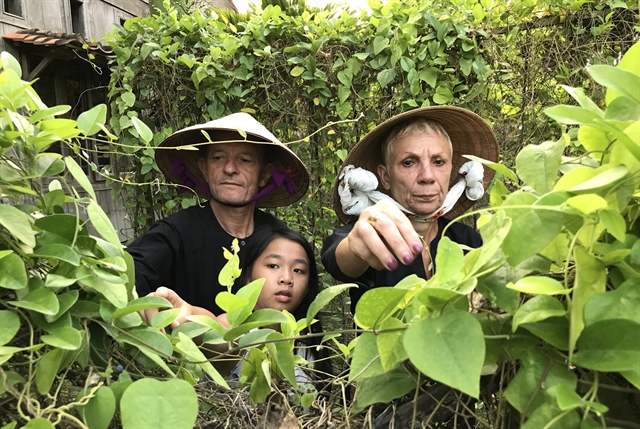
|
| Tourists do gardening at Út Trinh Homestay. |
The sector has built a plan to develop special tourism products in four groups: homestay and ecological tours to fruit gardens, tours to understand local cultural figures, agriculture tours and tours to handicraft villages.
The plan will be submitted to the provincial authorities for approval by the end of next month.
Lữ Quang Ngời, chairman of Vĩnh Long People’s Committee, says the province has invested in infrastructure projects like building roads linking four island communes of Long Hồ District, linking Mương Lộ Canal and Cái Muối River, and building a new wharf for tourism boats.
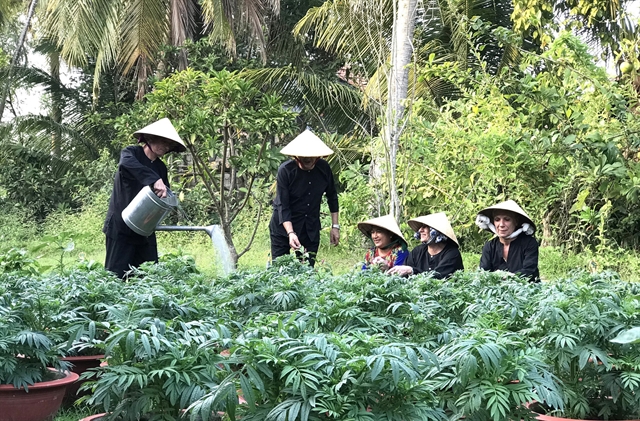
|
| Tourists water flowers at Út Trinh Homestay. |
“We have always welcomed investors with convenient policies to develop tourism,” he says. “Last year, 12 enterprises invested in local tourism with a total capital of VNĐ680 billion ($29 million).”
Ngời says the province will direct the tourism sector to set up more projects like building a museum of agriculture for the Mekong Delta and promote Mang Thít Red Ceramic Village as a new destination.
He also says the province is co-ordinating with HCM City and 13 provinces in the Mekong Delta region to develop tourism.
In 2019, Vĩnh Long received 1.5 million tourists, a 15 per cent increase against the previous year. The income from tourism last year was VNĐ525 billion ($22.5 million), a 54 per cent year-on-year increase.
The province is homes a dense system of canals and rivers and rich gardens of tropical fruits like custard apple, dragon fruit, grapefruit and rambutan.
There are now nearly 100 homestays, guest houses and hotels; 40 tourism sites; and 50 fruit gardens offering snacks and meals during the day.
Notably, Vĩnh Long hosts 25 standard homestays, two of which reached the ASEAN homestay standard between 2017-2019 and 2019-2021.
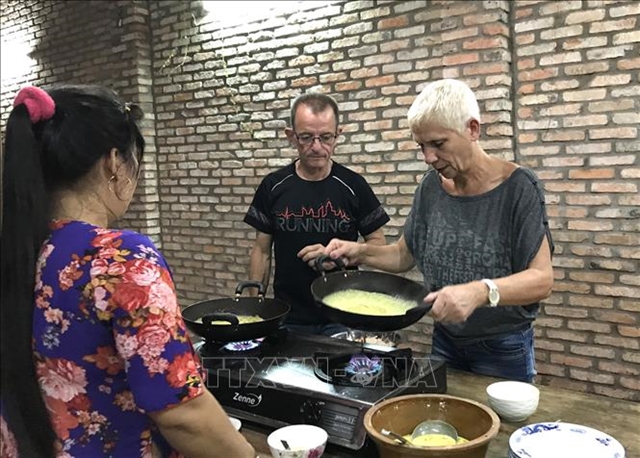
|
| Tourists learn how to make local food. |
Giàu says Vĩnh Long has been considered as the cradle of tourism form combining homestay and ecological fruit garden tourism in the south.
“We have invested much on the homestay quality to make it a special strength to compete against other neighbouring provinces,” he says.
The province also hosts 44 provincial level historical-cultural sites and 11 sites of national level.
The province hosts 25 handicraft villages making rattan wares, leaves weaving, rice crepes, ceramic wares, and forging. VNS




